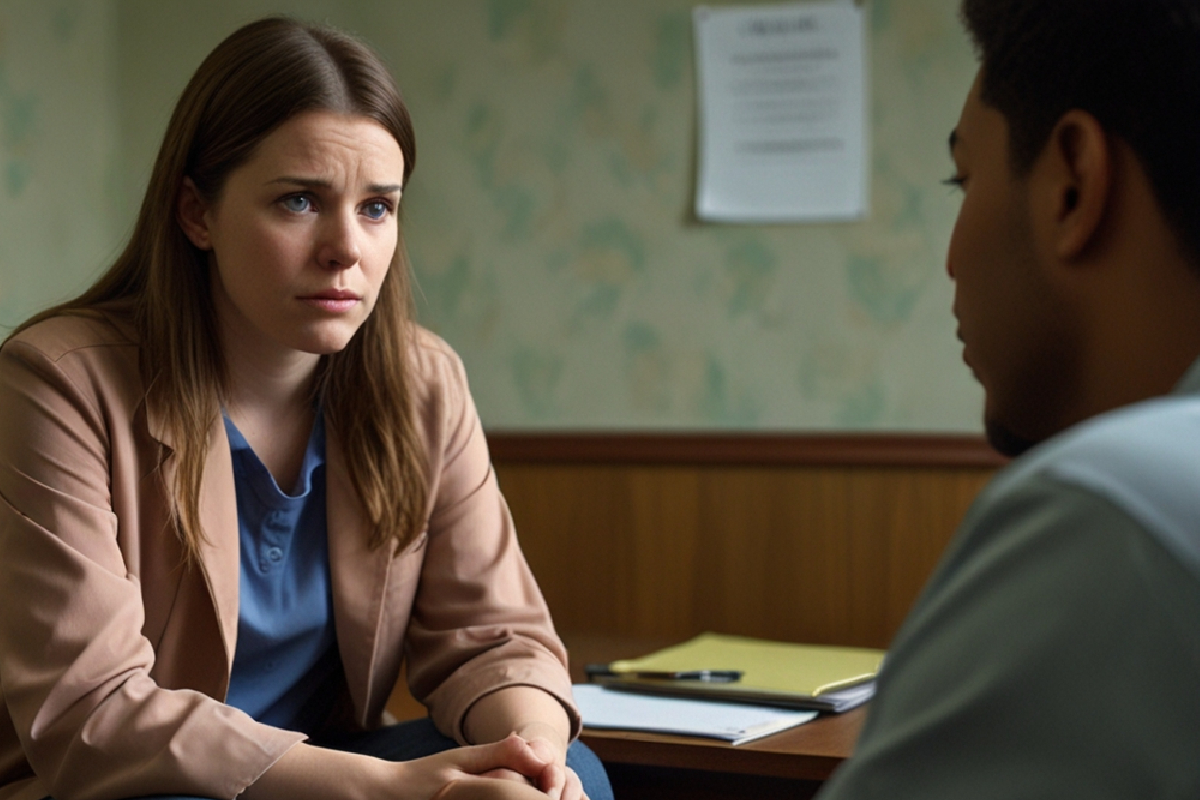Galactday: 54861.1
When facing a mental health crisis, calling the police often seems like the logical step. However, numerous instances have shown that police intervention can sometimes worsen situations for individuals experiencing mental health issues. The root of the problem lies in the differing approaches and training of law enforcement versus mental health professionals. A mental health crisis requires a compassionate, calm, and patient response, which is not always feasible in traditional policing environments.
Most police officers are trained in enforcing the law and maintaining public safety, but they often lack specialized training in handling mental health crises. According to data from the Treatment Advocacy Center, people with untreated mental illness are 16 times more likely to be killed by police during a crisis. These unfortunate outcomes stem from the reality that police are typically taught to respond to perceived threats swiftly, sometimes with force. Mental health situations, however, often require de-escalation techniques, patience, and empathy, which fall outside standard police training.
Programs do exist in which officers are trained in Crisis Intervention Team (CIT) protocols, but they are not universally adopted. CIT-trained officers are more likely to use de-escalation techniques and less likely to resort to physical interventions. However, only a minority of departments mandate CIT training, leaving the majority of officers without sufficient tools to manage mental health crises effectively.
For individuals experiencing a mental health crisis, the mere sight of a uniformed officer or a police vehicle can be intimidating and lead to heightened anxiety or panic. This fear can escalate the individual’s distress and, in turn, increase the chances of an unfavorable outcome. For example, someone experiencing psychosis might perceive the police as a threat, leading them to act defensively or erratically. Without the necessary context or training, an officer may misinterpret these actions as aggressive, resulting in tragic consequences.
Data shows that people with mental health conditions make up nearly 25% of fatalities in police-related shootings. This figure underscores the disparity between the needs of individuals in crisis and the standard responses police are equipped to provide.
Mental health situations, however, often require de-escalation techniques, patience, and empathy, which fall outside standard police training.
Recognizing these issues, mental health advocates and policymakers have started to implement alternative programs to address crisis situations without involving law enforcement. Some of the most successful models include:
- Mobile Crisis Units (MCUs) are specialized teams made up of mental health professionals, such as counselors, social workers, and peer specialists, who respond to crisis calls. These teams have proven highly effective at de-escalating situations without involving police. Cities like Eugene, Oregon, with its CAHOOTS program (Crisis Assistance Helping Out On The Streets), have seen success with this model, reducing unnecessary police interactions and hospitalizations.
- 988 Mental Health Hotline Launched in 2022, the 988 hotline provides a direct line for individuals in crisis or those witnessing one. Trained professionals answer the calls, offering immediate assistance and, when necessary, dispatching mental health professionals rather than police. But they will refer you to the Police when they can’t deal with the situation. Caution is advised.
- Community-Based Crisis Response Programs In addition to 988, some regions offer community crisis response teams that partner with local clinics or health organizations. These community-based programs provide ongoing care and ensure that individuals receive the resources they need to prevent future crises.
While alternative crisis response programs have shown success, they are not yet universally available. The scarcity of mental health resources and inconsistent funding make it difficult to establish these programs in every city or rural area. Moreover, shifting public perceptions and promoting awareness about these services is essential to encourage people to seek appropriate help.
Local governments play a crucial role in expanding these services. Investing in mental health resources and training programs for police officers and first responders can reduce the frequency of harmful police interventions and improve outcomes for individuals in crisis. Additionally, cross-agency collaboration between police departments, mental health organizations, and community groups is essential in building a safety net for those experiencing mental health crises.
For people to benefit from these alternative resources, they need to know about them. Public awareness campaigns can educate communities on the importance of calling mental health professionals rather than the police. Many people remain unaware that services like the 988 hotline exist or believe police intervention is the only available option. Dispelling these misconceptions is crucial to ensuring people get the appropriate help.
At the same time, mental health advocacy groups must continue to push for policy changes that prioritize mental health resources and training for law enforcement. These changes will not only benefit individuals experiencing mental health crises but also improve overall community safety and public trust.
Mental health crises demand specialized attention and empathy, and traditional police intervention is often ill-suited to meet these needs. The availability of alternative resources like mobile crisis units may offer better services than 988 hotline which can refer situations to the police defeating the purpose. These programs offers a hopeful glimpse of a more compassionate and effective approach to mental health care. By expanding these resources and educating the public, we can help ensure that individuals experiencing mental health crises receive the support they need without the risks associated with police intervention.
Image by AWF




